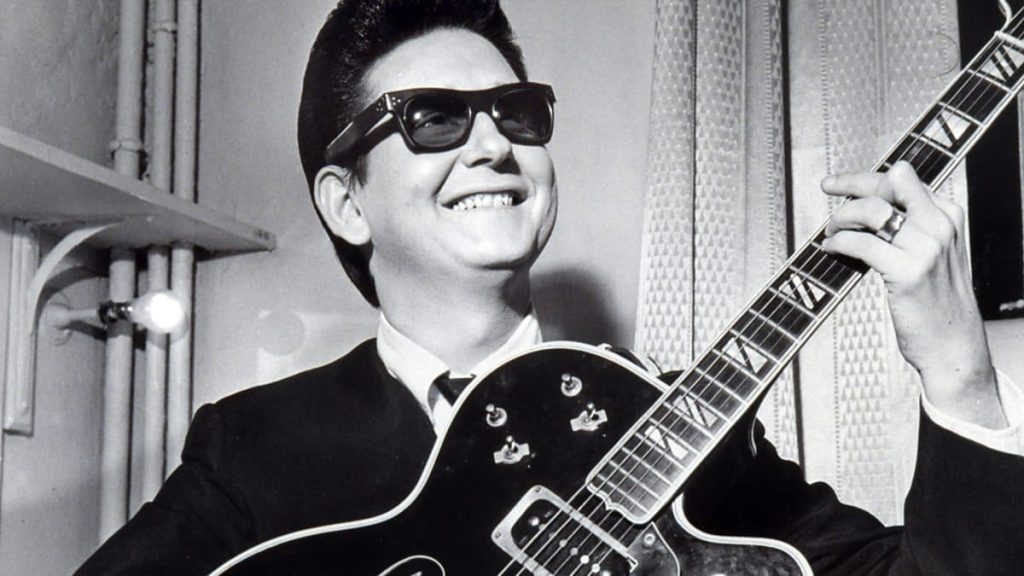
“Dream Baby (How Long Must I Dream)” – Roy Orbison’s Infectious Pop Classic
Released in 1962, Roy Orbison’s “Dream Baby (How Long Must I Dream)” is one of the singer’s most upbeat, infectious hits, departing slightly from the melancholy ballads he was most known for, like “Crying” and “Only the Lonely.” Written by Cindy Walker, this track radiates with energy and showcases Orbison’s effortless ability to blend rockabilly, pop, and country influences into a sound uniquely his own. It reached an impressive No. 4 on the Billboard Hot 100, and it further solidified Orbison’s reputation as a versatile artist with an unmistakable voice.
One of the first things that grabs you about “Dream Baby” is its lively rhythm and its punchy, driving beat, which contrasts with some of Orbison’s more tender, heart-wrenching ballads. The song bursts to life with its chugging bassline, lively drums, and bright guitar riffs. There’s an almost joyous sense of movement in the music, which makes it feel like a song that was made for cruising down the highway on a sunny day. It’s no wonder that “Dream Baby” became a hit—it’s an irresistible slice of early 1960s pop with a catchy melody that stays with you long after the song ends.
Vocally, Roy Orbison shines in his usual, inimitable way. Known for his soaring falsetto and operatic style, Orbison’s voice in “Dream Baby” has a playful energy to it. He sings with a sense of anticipation and longing, but there’s also a flirtatiousness in the way he delivers lines like “I’m waiting for you to hold me tight” and “I love you and I’m dreaming of you, that won’t do.” His voice is rich and full, capturing both the yearning of waiting for a lover and the excitement of imagining when they’ll finally be together.
Though the song is built on a relatively simple structure, it’s Orbison’s delivery that elevates it. His voice dances over the upbeat rhythm with ease, but there’s still that hint of yearning that makes it unmistakably Orbison. “Dream Baby” may not have the deep emotional gravitas of his later work, but it’s a shining example of how he could take a simple pop song and inject it with emotion and personality. The song’s bridge, where he sings “All I can do is dream you”, showcases Orbison’s incredible control and his ability to convey deep feeling with just a few words.
Lyrically, “Dream Baby” tells a straightforward but relatable story of unrequited love. The narrator is hopelessly in love, dreaming about a romantic future with someone who seems just out of reach. The repetitive chorus, “Dream baby, got me dreaming sweet dreams, the whole day through”, captures that feeling of being so consumed by thoughts of someone that you can’t focus on anything else. It’s a sentiment that’s easy to connect with, and Orbison’s impassioned performance makes it feel personal.
What’s also notable about “Dream Baby” is the way it blends musical styles. There are clear elements of rock and roll in the song’s upbeat tempo and rhythm, but there are also traces of country music in the twangy guitar and the song’s storytelling approach. This mix of genres was one of Roy Orbison’s trademarks. Throughout his career, he managed to straddle the line between rock, pop, and country, making his music accessible to a wide range of listeners. “Dream Baby” is a perfect example of this crossover appeal—it has the energy of early rock, the emotionality of pop, and the storytelling of country.
The song’s production is relatively simple, typical of the early 1960s, but it’s that simplicity that allows Orbison’s voice to shine. The arrangement is tight and punchy, with the guitars, drums, and backing vocals perfectly complementing the lead melody. There’s a slight echo on Orbison’s voice that gives it a bit of a dreamy quality, which ties into the theme of the song. The backing vocals, which echo “How long must I dream?”, add an extra layer of emotion, as though the singer is not only asking the question but also pondering it deeply.
“Dream Baby” became a staple of Roy Orbison’s live performances, and it remains one of his most beloved songs. Though it’s more upbeat and lighthearted than some of his other major hits, it still showcases his incredible vocal talent and his knack for writing songs that touch on universal emotions. It’s a testament to Orbison’s versatility as an artist that he could move seamlessly between songs of heartache and songs of hope, all while maintaining his distinctive style.
In the context of Orbison’s career, “Dream Baby” stands as a high point in his early 1960s output, representing a period when he was experimenting with different sounds and expanding his musical horizons. The song’s commercial success helped propel him to even greater heights, and it remains a timeless classic that continues to resonate with fans of all ages. Whether you’re discovering Roy Orbison for the first time or revisiting his catalog, “Dream Baby” is a song that captures the magic of his voice and his ability to turn a simple pop tune into something truly special.